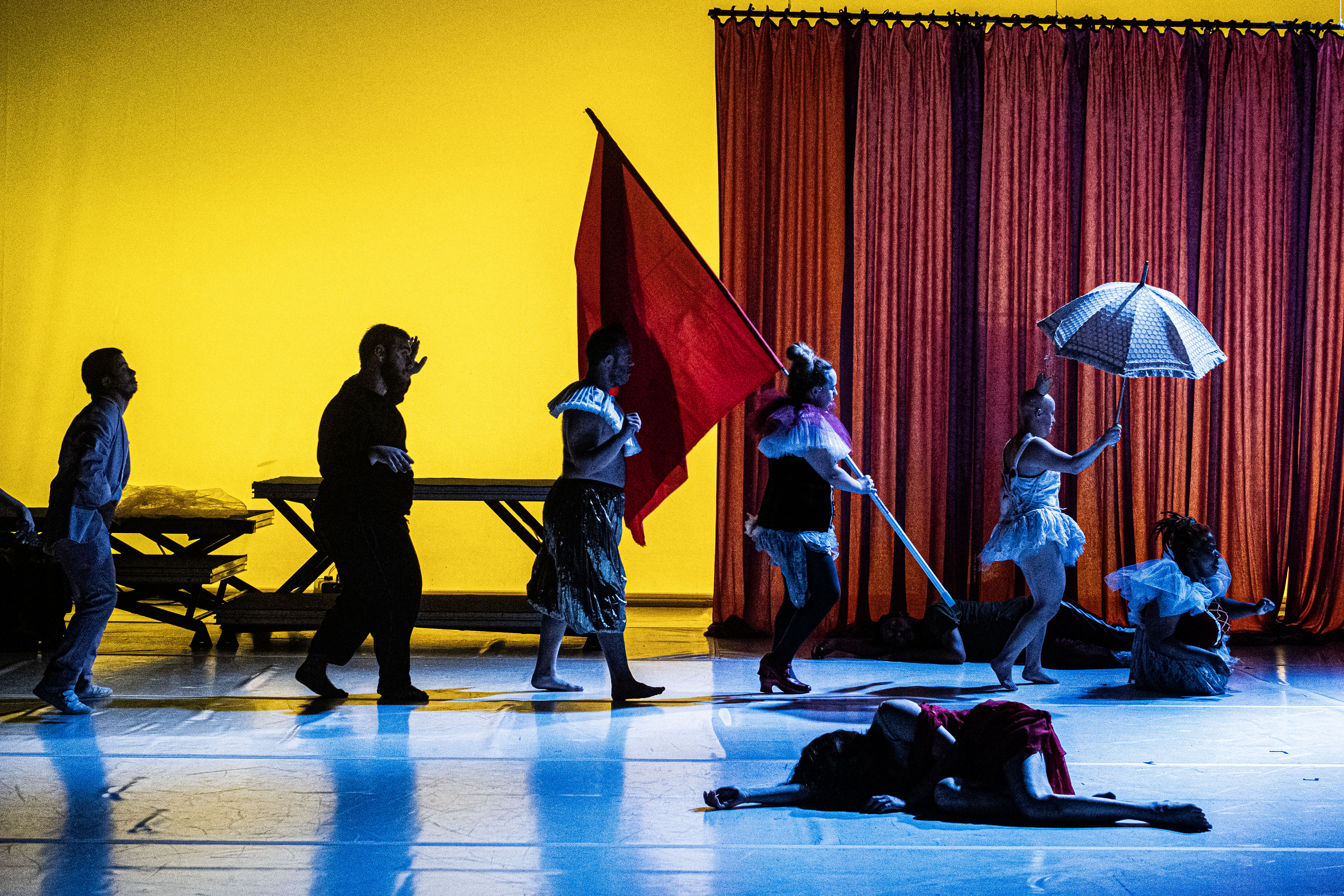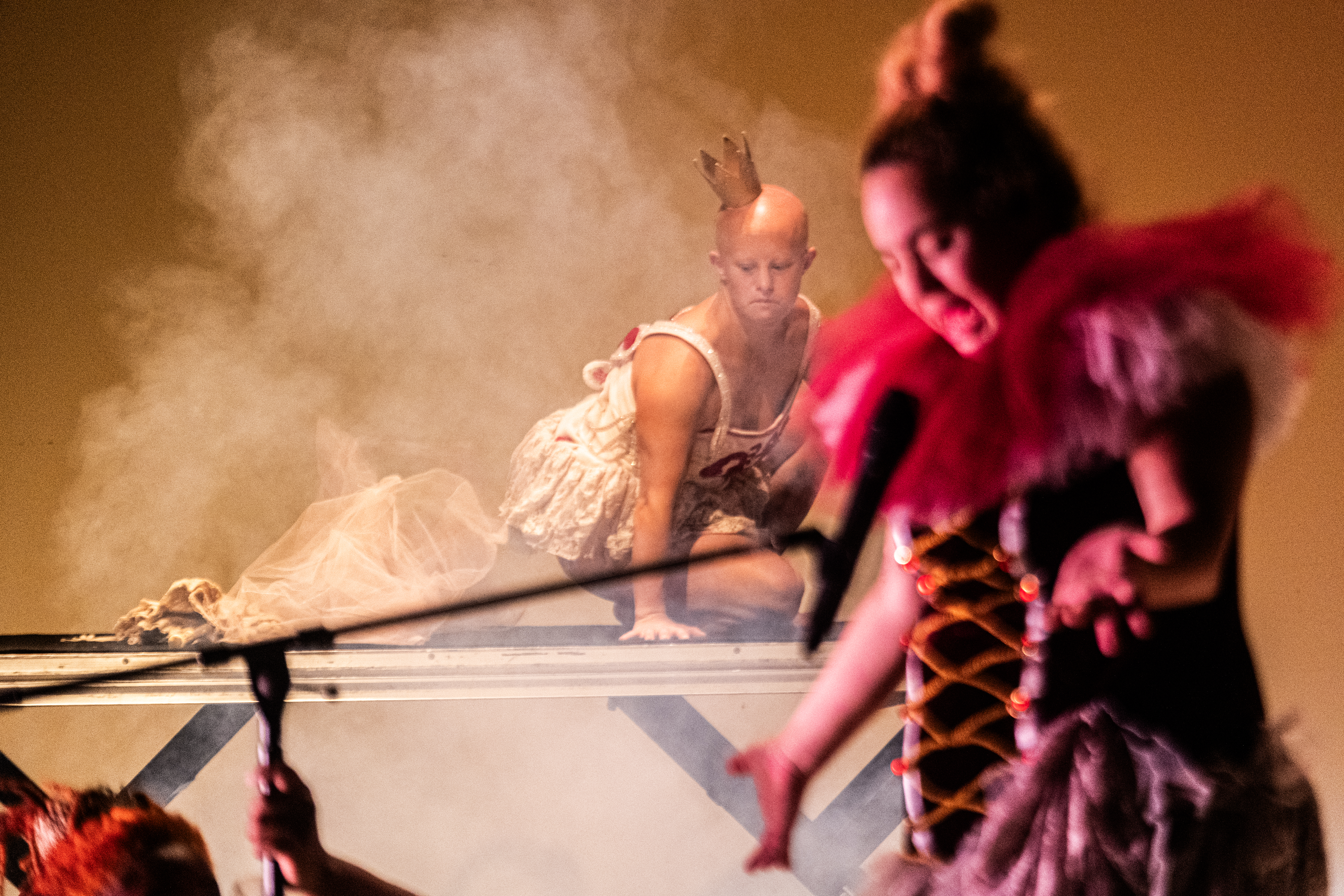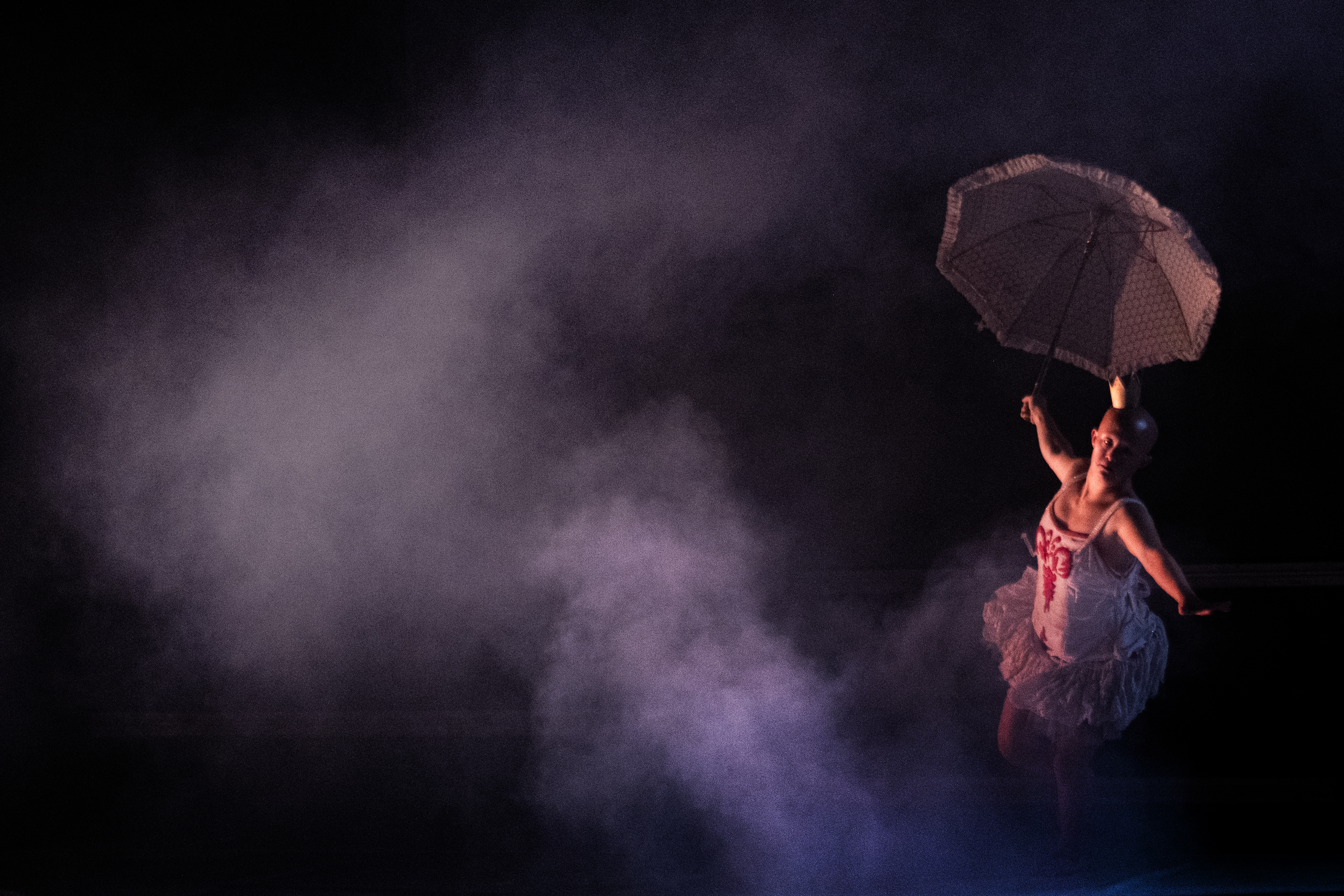EN

Victor Hugo Pontes © Estelle Valente
On 23 and 24 April, the stage of the Teatro Municipal do Porto - Rivoli will host Os Gigantes, the latest creation by Victor Hugo Pontes, in collaboration with the company Dançando com a Diferença, premiering at DDD - Festival Dias da Dança. "It's a showcase for what's being done here and abroad, a place for sharing and growth. I'm proud to be part of this story," he says of the festival.
Born in Guimarães and with Porto as his home and shelter, the choreographer and director doesn't hide his desire to bring this show to the city where he trained, between the visual arts and the performing arts. "Theatre is the place of dreams; dreams are the place of possibilities. And theatre is exactly that - a place where we can be whoever we want, however we want."
If Porto continues to be a haven, it is also a place of transformation - not always easy. "Thirty years ago, when I arrived, Porto was a different city. More authentic, full of small businesses and familiar faces. Today, I arrive in Porto and I no longer recognise the place, because the people are no longer the same as those working in the cafés, the small businesses are closing, I've started to find a much more cosmopolitan Porto, but at the same time one with less of an identity."
Even so, it's in the city and its artistic community that he finds the impetus to create. "More and more creators are settling in Porto. People who come from other parts of the country to work, and they stay. Because they feel that the dance community in Porto is much more vibrant than elsewhere. That says a lot about the energy this city has. DDD has helped consolidate that. Programmers from all over Europe come here to see what's being done. It's a privilege to be able to present a show in this context."
Os Gigantes
Inspired by Luigi Pirandello's The Mountain Giants - a play that was left unfinished - the show comes as a collective dream, where reality and fantasy mix. ‘To work with this particular company, I felt I needed to create a collective imaginary,’ says Victor Hugo Pontes. ‘It would be much easier to work with these performers once they had a narrative, or a story they could work with, rather than from a more abstract concept.’
When he chose Pirandello, Victor Hugo wasn't just looking for a text, but a universe that the performers could enter and inhabit. "I chose this text because of the play's first didascal, which says: “indeterminate time and place, on the border between fantasy and reality”. And I think that's the place these performers inhabit as human beings - between their reality and our reality."

Os Gigantes © Paulo Pimenta
Above all, he is inspired by the games and atmospheres suggested by these didascallias to generate action. "I was interested in focussing more on the unlucky ones, on these characters who are non-standard people or people with disabilities, who are cast aside in society. Working from these dynamics, from this everyday life in which they live in isolation, waiting for someone to arrive."
But the inspiration doesn't just come from the words of the Italian playwright. It also comes from an unlikely encounter: Samuel Beckett's Waiting for Godot meets The Giants of the Mountain in this creation. ‘Sometimes I feel there's an invisible line between these two universes: characters waiting for someone who never arrives, unlucky people living on the margins, waiting for a salvation that never comes.’
From the margin to the centre

Os Gigantes © Paulo Pimenta
With Companhia Dançando com a Diferença, the challenge goes beyond choreographic creation. It's an encounter between bodies and stories, between margins and centres. "I'm interested in working with those on the margins, bringing those margins to the centre. These performers always surprise me. They're spontaneous, genuine, unpredictable. Sometimes what they do on stage is something that we normative performers spend years trying to achieve."
The creative process requires availability and listening: "I have to understand what they want to say, and that's not always easy. Some don't verbalise, but communicate in other ways, intensely and directly. When they like you, they hug you, kiss you, pet you. When they don't like you... you can tell too. And it's in that honesty that the beauty of this work lies."
At the centre of this show is also the idea of incompleteness. Just as Pirandello left his play unfinished, Victor Hugo embraces this uncertainty. "Pirandello asks this question: what inspires theatre itself? Is it life? Is it the theatre? Is what we see on stage reality, fiction or representation? Are they being themselves or playing characters? The show will tend to wander a lot around these concepts."
‘I'm interested in showing what this reality is, how we are as people, how we relate to each other, how we accept the other, how we accept difference, how we are all different from each other, how the margins can be at the centre and not excluded, that's why I'm much more interested in this human dance; when I say human, I mean that on stage it's a reflection of what the world is,’ he adds.

Os Gigantes © Paulo Pimenta
Spontaneity and discovery
Working with disabled interpreters is, for Victor Hugo Pontes, a demanding and deeply enriching challenge. "It's not enough to direct. You have to know how to listen, how to be sensitive. It takes time and patience. It's a constant dialogue in which I learn as much as they do."
The process is full of unexpected episodes. "I remember a rehearsal in which one of the performers, on hearing the name of the character “Diamante”, thought she was another character's “mistress”. I told her: 'No, you're Diamante. A precious stone. But for her, she was “the lover”... And that's part of the show, that spontaneity that can't be manufactured."
Even the costume work, devised in partnership with Pedro Azevedo, brought surprises. "We borrowed costumes from the São João National Theatre, convinced that we knew what each person was going to wear. It was very curious to see them choose pieces that we would never have imagined for them. Boys wanting to wear girls' costumes... It was really nice, because they break down prejudices that we actually have in our heads."
On stage, there's room for surprise, but also for rigour. "They're incredibly professional. We've done open presentations, and there have been programme-makers who have attended two days in a row because they thought it might change. They were amazed: they repeated every detail with precision. Of course, there's always a margin for the unexpected, but they really are very rigorous in what they do, even though sometimes it all seems spontaneous."
The show's soundtrack is being created by Throes + The Shine, in a process that is still under construction. "I invited them because they have this rhythmic, pulsating side, with African influences and a dialogue between rock and kuduro. And I realised that the rhythm completely changes the way the performers move. For them, sound is impulse and freedom."
As for his own artistic identity, Victor Hugo Pontes works in several artistic languages and this can be felt in his shows. "I started out in visual arts and theatre. Dance came later. Today, I can't tell if I do dance, theatre or performance. I do it all together. Everything we do is a reflection of who we are." He adds: "The arts complement each other. This is visible in my work. The most visible thing on the one hand has to do with the plastic and aesthetic sense. I take great care with the visual side and with what's on stage. I work with people who add to my work, because the work isn't done alone. There's a very strong relationship with scenography, which I think comes from the theatre. In dance, there was usually no scenography; now there is more."
With Os Gigantes, the choreographer and director says he ‘wants to raise questions’. "I don't have answers, I want to share doubts. Theatre is a place of dreams, of possibilities. And I think it's great that we still have this ability to dream. Because when we dream we are free."
Share
FB
X
WA
LINK



![[Festival DDD] - Os Gigantes](https://img.bndlyr.com/nskcmaaopx/_assets/os-gigantes.jpg?fit=fill&w=800)